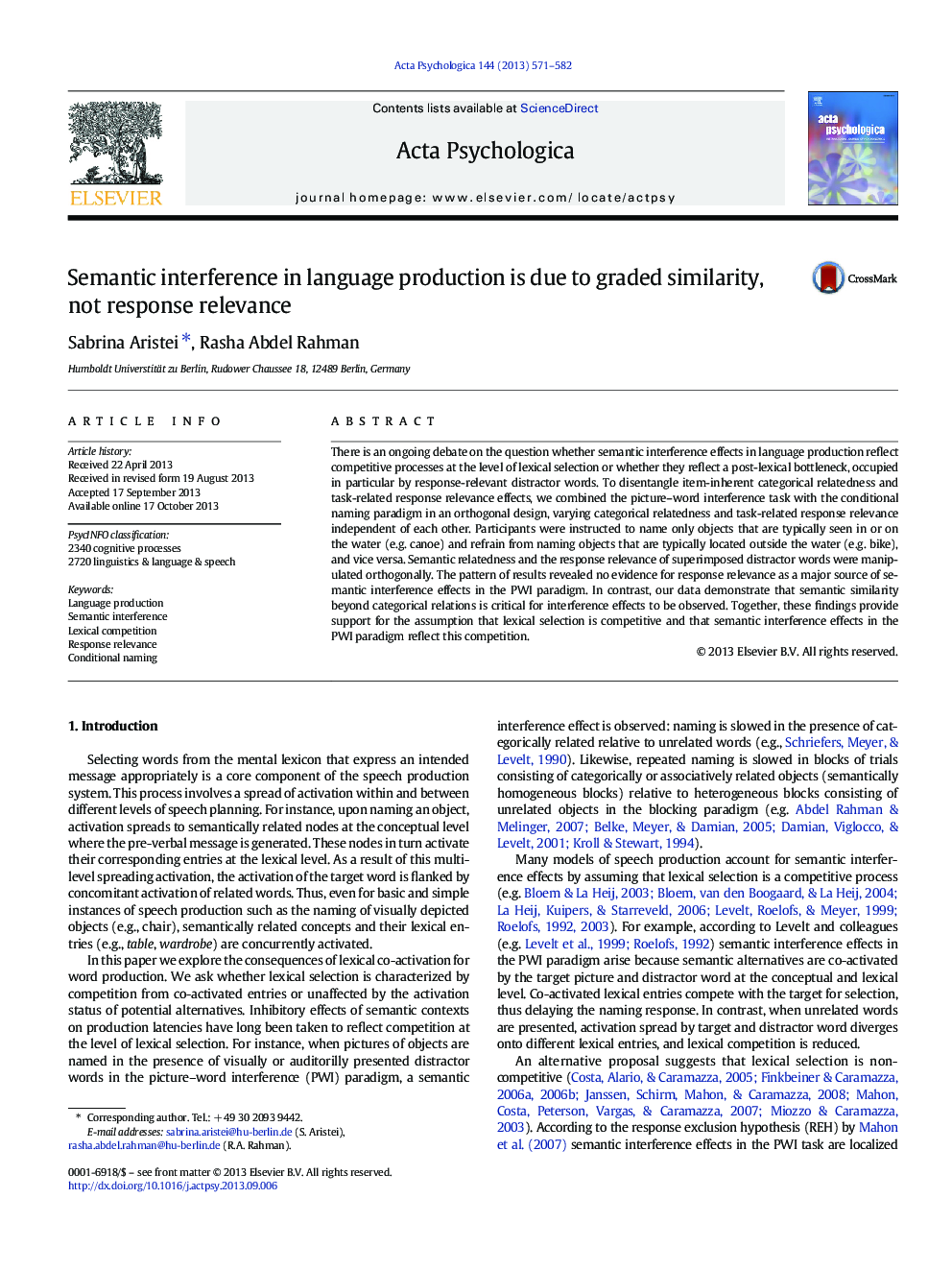| Article ID | Journal | Published Year | Pages | File Type |
|---|---|---|---|---|
| 10453809 | Acta Psychologica | 2013 | 12 Pages |
Abstract
There is an ongoing debate on the question whether semantic interference effects in language production reflect competitive processes at the level of lexical selection or whether they reflect a post-lexical bottleneck, occupied in particular by response-relevant distractor words. To disentangle item-inherent categorical relatedness and task-related response relevance effects, we combined the picture-word interference task with the conditional naming paradigm in an orthogonal design, varying categorical relatedness and task-related response relevance independent of each other. Participants were instructed to name only objects that are typically seen in or on the water (e.g. canoe) and refrain from naming objects that are typically located outside the water (e.g. bike), and vice versa. Semantic relatedness and the response relevance of superimposed distractor words were manipulated orthogonally. The pattern of results revealed no evidence for response relevance as a major source of semantic interference effects in the PWI paradigm. In contrast, our data demonstrate that semantic similarity beyond categorical relations is critical for interference effects to be observed. Together, these findings provide support for the assumption that lexical selection is competitive and that semantic interference effects in the PWI paradigm reflect this competition.
Keywords
Related Topics
Life Sciences
Neuroscience
Cognitive Neuroscience
Authors
Sabrina Aristei, Rasha Abdel Rahman,
